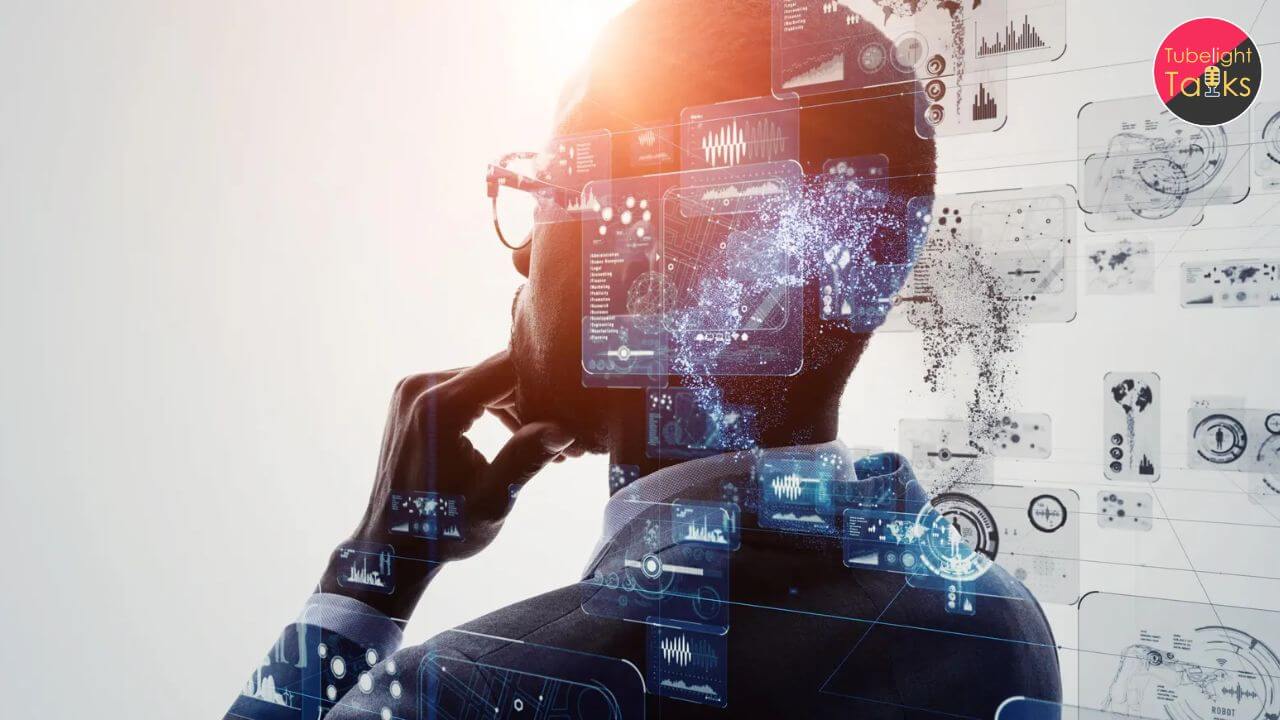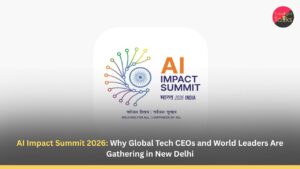The Future of Artificial Intelligence and Its Impact on Jobs and Society
Artificial Intelligence (AI) is no longer a futuristic concept; it is a rapidly advancing technology transforming industries, economies, and daily life. From self-driving cars to intelligent personal assistants like Siri and Alexa, AI is becoming an integral part of our world. However, with this growth comes both excitement and trepidation. As AI continues to evolve, its potential impact on jobs, society, and the global economy is a topic of intense debate. In this article, we will explore the future of AI, its implications for employment, and the broader societal consequences that come with its rise.
The Rise of AI: A Brief Overview
AI refers to the simulation of human intelligence in machines programmed to think, learn, and problem-solve like humans. Machine learning, deep learning, and neural networks are subsets of AI that enable machines to improve their performance over time by processing vast amounts of data. AI is already being used across various sectors, from healthcare and finance to manufacturing and entertainment. Technologies like natural language processing (NLP), computer vision, and predictive analytics are making AI applications more sophisticated and accessible.
In recent years, AI has demonstrated an ability to automate complex tasks that traditionally required human intervention. This has led to significant productivity gains, cost reductions, and the creation of innovative services. The future of AI holds even more promise, with the potential to revolutionize industries, improve quality of life, and unlock new possibilities for innovation.
Impact of AI on Jobs
One of the most pressing concerns surrounding AI is its potential to disrupt the job market. As AI becomes more capable of performing tasks traditionally done by humans, many fear widespread job displacement. This concern is particularly prominent in industries that rely on repetitive tasks, such as manufacturing, customer service, and retail.
Job Automation
The automation of manual and repetitive tasks is one of the most obvious impacts of AI. Machines can already perform tasks with greater speed, precision, and consistency than humans. For instance, in manufacturing, robots can assemble products faster and with fewer errors than human workers. In the customer service sector, chatbots powered by AI can handle routine inquiries, leaving human agents to focus on more complex issues. Similarly, self-checkout systems in retail stores have replaced the need for cashiers in many locations.
Also Read: Top 10 Tips To Develop Patience In Everyday Life
According to a study by the McKinsey Global Institute, up to 800 million jobs worldwide could be displaced by AI and automation by 2030. Sectors such as transportation, logistics, and administrative support are particularly vulnerable. For example, self-driving vehicles could lead to job losses for truck drivers, while AI-powered systems may reduce the need for clerical workers in offices.
Job Creation and Transformation
While automation will certainly eliminate certain jobs, AI will also create new ones. These new roles may require different skill sets and adapt to emerging technologies. For example, the rise of AI will likely lead to an increased demand for data scientists, machine learning engineers, and AI specialists. Additionally, roles focused on overseeing, maintaining, and improving AI systems will emerge, requiring individuals with expertise in AI and its applications.
AI will also transform existing jobs, enabling workers to focus on more creative and strategic tasks. For instance, in healthcare, AI can assist doctors by analyzing medical images, suggesting diagnoses, and recommending treatment plans. This allows healthcare professionals to spend more time interacting with patients and providing personalized care. Similarly, in the financial sector, AI can analyze vast amounts of data to provide insights, helping analysts make better-informed decisions.
The Skills Gap
As AI evolves, there will be an increasing need for workers to develop skills that complement and work alongside these technologies. The World Economic Forum’s “Future of Jobs” report highlights the growing demand for digital skills, such as programming, data analysis, and AI literacy. However, many workers, particularly those in industries vulnerable to automation, may not possess these skills. Addressing the skills gap through education and training programs will be essential to ensuring that workers are prepared for the jobs of the future.
Societal Implications of AI
The impact of AI extends beyond the job market and into the fabric of society itself. As AI continues to evolve, it will reshape how we live, work, and interact with one another. While there are numerous benefits, there are also significant challenges and ethical concerns that must be addressed.
Economic Inequality
AI has the potential to increase economic inequality. While highly skilled workers with expertise in AI and technology will likely see job growth and higher wages, those in lower-skilled positions may face job displacement and wage stagnation. If left unchecked, this could exacerbate the existing wealth gap, with a concentration of wealth and power in the hands of a few large technology companies and their executives.
Governments and policymakers will need to find ways to ensure that the benefits of AI are distributed equitably across society. This may include implementing policies such as universal basic income, progressive taxation, and investments in education and retraining programs for displaced workers.
Ethical Concerns and Bias
Another significant issue surrounding AI is the potential for bias in algorithms. AI systems are trained on data, and if the data used to train these systems is biased, the resulting AI decisions can perpetuate and even amplify those biases. This can have serious implications in areas such as hiring, law enforcement, and healthcare, where biased algorithms could lead to discrimination against certain groups of people.
To mitigate these risks, AI developers must ensure that algorithms are transparent, fair, and accountable. Ethical frameworks and regulations will be necessary to guide the development and deployment of AI systems to prevent harm and promote fairness.
Privacy and Security
AI systems often rely on large datasets, which may include sensitive personal information. As AI continues to advance, concerns about privacy and data security will grow. For example, AI-powered surveillance systems can track individuals’ movements and behaviors, raising concerns about the erosion of privacy rights. Additionally, AI technologies can be used to launch sophisticated cyberattacks, posing a threat to national security and personal data.
Ensuring that AI systems are secure, transparent, and respect privacy will require robust regulations and technological safeguards. Governments, organizations, and individuals will need to collaborate to ensure that AI is developed and used responsibly.
The Path Forward: Embracing AI’s Potential
Despite the challenges posed by AI, there is no doubt that the technology holds immense potential to improve our world. From reducing healthcare costs and advancing scientific research to solving global challenges like climate change and poverty, AI can play a crucial role in addressing some of society’s most pressing issues.
To maximize the benefits of AI while mitigating its risks, it is essential to prioritize education, regulation, and ethical considerations. Workers will need to be equipped with the skills necessary to thrive in an AI-powered world, and policies must be enacted to ensure that the benefits of AI are shared broadly.
In conclusion, while Artificial Intelligence promises to revolutionize the world, it is crucial to remember that technology alone cannot bring true peace or happiness. Saint Rampal Ji Maharaj, through his divine teachings, emphasizes the importance of spiritual knowledge and the true purpose of life.
According to his teachings, material advancements, such as AI, are temporary and cannot provide lasting fulfillment. Saint Rampal Ji guides us toward the path of devotion to the Supreme God (SatPurush), who is the ultimate source of peace and happiness. He encourages us to practice true worship of Kabir Sabeh ji to attain eternal bliss, free from the distractions of worldly desires.
Saint Rampal Ji stresses that while technological progress is important, it should not divert us from our spiritual growth. Only through the guidance of a true spiritual master and devotion to God can one achieve inner peace, moral integrity, and the wisdom to use technology for the welfare of humanity. By integrating spiritual wisdom with technological advancements, we can create a more balanced and harmonious world.
FAQs on Impact of AI on Jobs
1. How will Artificial Intelligence impact the job market?
AI is expected to both displace and create jobs. Automation will replace repetitive tasks in industries like manufacturing and customer service, while new roles in AI development, data analysis, and machine learning will emerge. The key challenge is upskilling the workforce to adapt to these changes.
2. What are the risks of AI in society?
AI could contribute to economic inequality, amplify biases in decision-making, and raise privacy concerns due to the extensive data it uses. Ethical guidelines and regulation will be necessary to mitigate these risks and ensure AI benefits all of society.
3. Will AI replace all jobs?
No, AI is more likely to transform existing jobs rather than replace them entirely. Many tasks will be automated, but humans will still be needed for roles requiring creativity, emotional intelligence, and complex decision-making.
4. What industries are most likely to be impacted by AI?
Industries such as manufacturing, logistics, customer service, healthcare, and finance will see significant impacts. In some, AI will automate routine tasks, while in others, it will enhance decision-making and improve efficiency.
5. How can we prepare for the future of AI?
To adapt to AI’s rise, it’s essential to focus on education and training. Investing in skills like data analysis, programming, and AI literacy will be critical for workers to thrive in an increasingly automated world.
6. What are the ethical concerns surrounding AI?
AI raises several ethical issues, including biases in algorithms, privacy violations, and the potential for AI to be used maliciously. Ensuring transparency, fairness, and accountability in AI development is key to addressing these concerns.
7. Can AI improve healthcare?
Yes, AI has the potential to revolutionize healthcare by assisting doctors in diagnosing diseases, analyzing medical data, and personalizing treatment plans. It could also streamline administrative tasks, reducing costs and improving patient care.











Discussion (0)